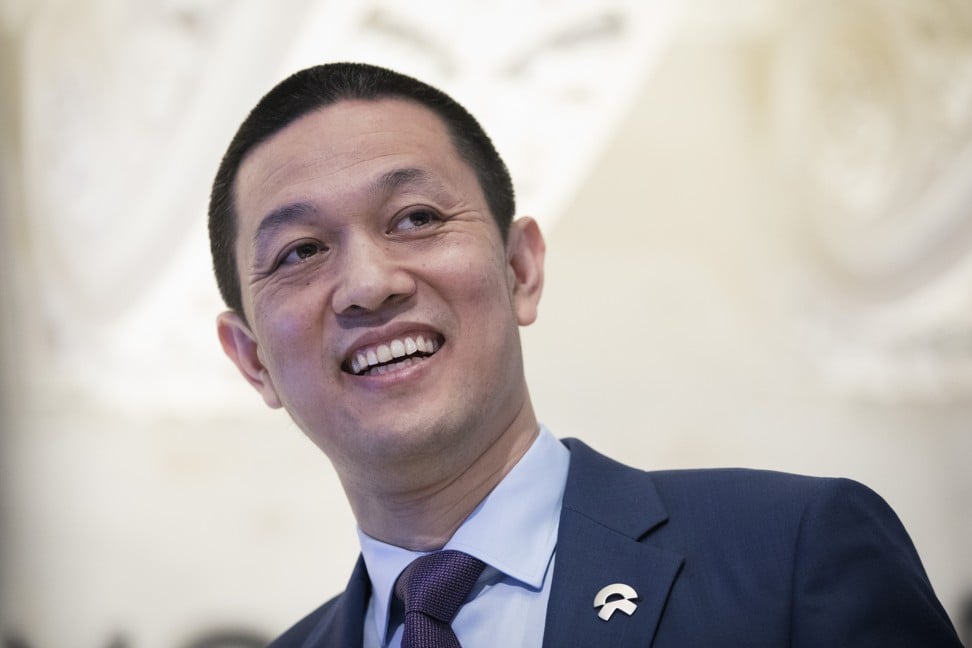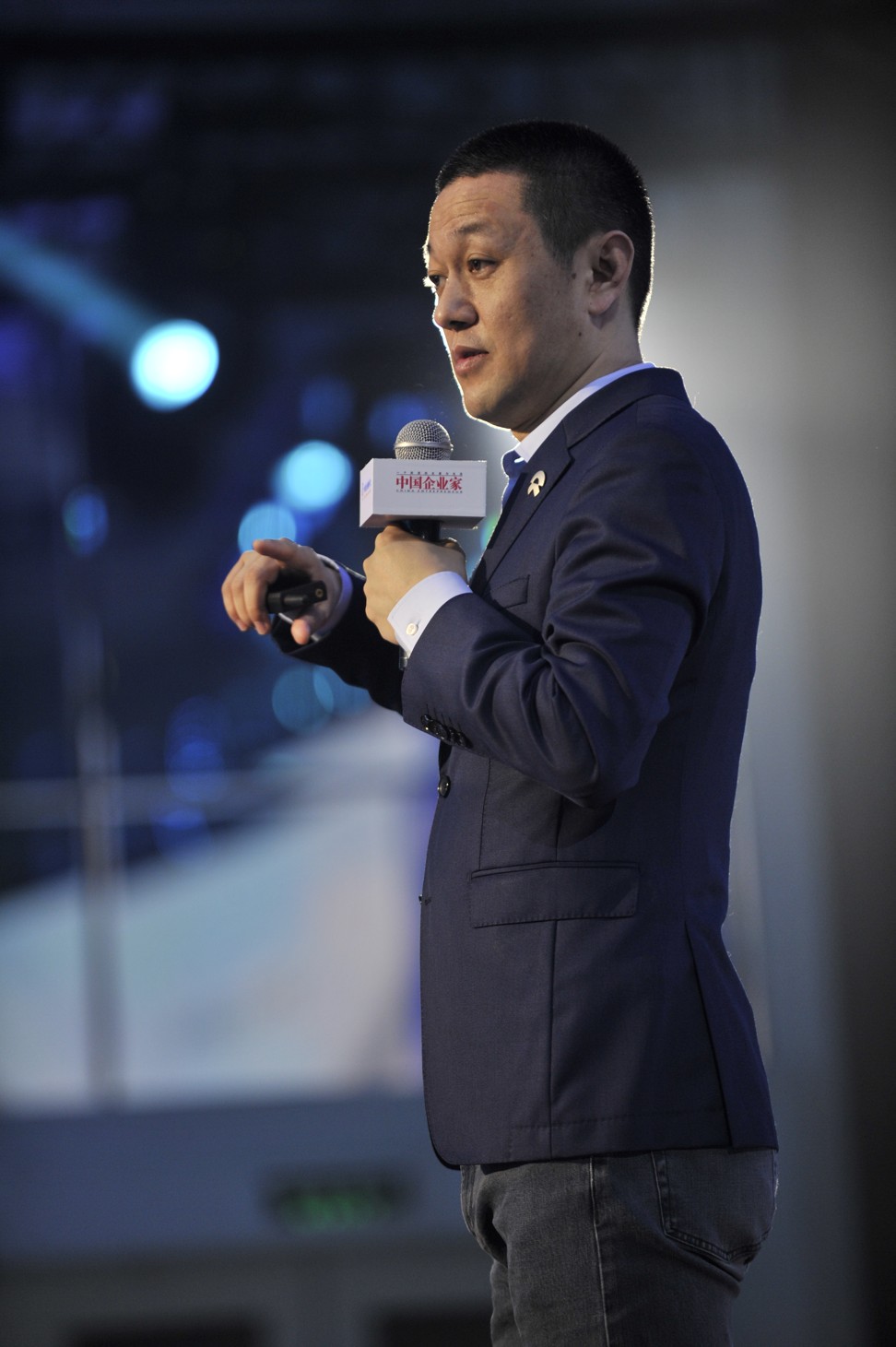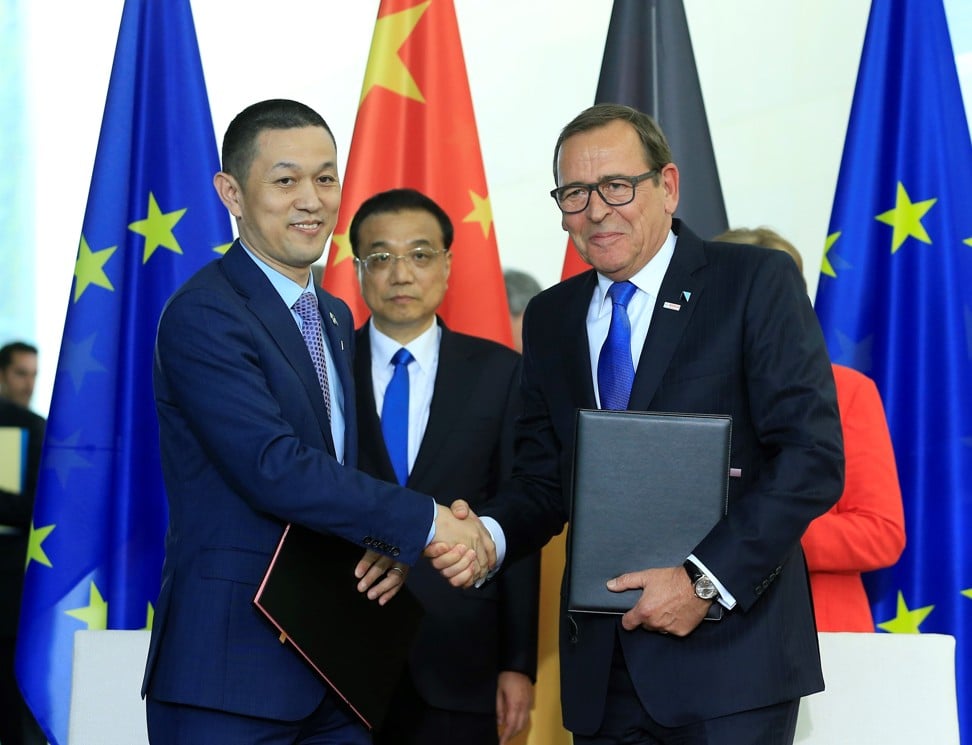Can William Li Bin – ‘Elon Musk of China’ – really turn electric vehicle maker NIO into a ‘Tesla killer’?

Known as the Elon Musk of China, William Li Bin, the chief executive of electric vehicle (EV) maker NIO, shares a similar drive and confidence as his industry rival. Li, 45, will need those attributes going on recent events.
The Shanghai-based company lost US$2.8 billion in the 12 months ending June 2019 on revenue of US$1.2 billion.
NIO raised US$1 billion in its initial public offering (IPO) on the New York Stock Exchange in September 2018. But it’s gone through that amount since then in marketing and real estate expenses.
And the EV manufacturer reportedly had less than US$500 million left at the end of June 2019.

In September, Li said in the company’s earnings report that NIO would implement cost-cutting measures such as reducing its workforce from 9,900 to 7,800 by the end of the third quarter.
In early December, 141 employees at NIO’s San Jose office were told that they would be laid off in another round of lay-offs.
In June, it had to recall about 5,000 of its ES8 electric SUVs after a series of battery fires in China, and an investigation unveiled a safety risk. Li said that it had “significantly affected [NIO’s] production and delivery results” because of the scramble to manufacture replacement batteries.
It’s no surprise that NIO’s shares have suffered. NIO was priced at US$6 per share when it went public, but the price closed at US$4.23 on January 30.

After spending US$36.5 billion in subsidies for EVs from 2009 to 2017, China ended subsidies for its 486 registered manufacturers in December 2019. Six months earlier, it had slashed the subsidies by 50 per cent.
“Our sales have been under pressure since the subsidies went down,” said Li. “It has come to a new era that one can only win customers with quality products and services.”
Everything had seemed promising enough when Tencent’s Pony Ma Huateng led a financing round that raised US$1 billion for NIO in 2017.
But slowing sales, greater competition and hefty costs have been major bumps in the road to any hopes of toppling Musk’s Tesla. There have been whispers of a possible bailout by the Chinese government if things do not change.
Li said in June 2019 that investors need to understand that developing new vehicles is costly, but that NIO would be profitable within a few years.
“No big deal,” he responded when asked about the slump.
He appears, or at least is trying to be, unfazed by it all.
“It’s like the clothes fashion models wear on the catwalk,” he said of rival Tesla’s cars in a television interview. “It’s not the same. They may be beautiful, but you can’t wear them every day.”
He did not deny calling his company a “Tesla killer”, and agreed with the interviewer when she compared Tesla to a supermodel and NIO as “the girl next door”.
Others don’t see things that way. Investment bank Piper Jaffray noted that the company is focused on high-end premium SUVs with base retail prices of US$45,000 to US$60,000.
Still, there has been some good news along the way.

In November, Intel’s EV technology-centred company, Mobileye said it was forming a strategic collaboration with NIO for highly automated and autonomous vehicles for consumer markets in China and elsewhere.
In terms of this partnership, NIO will engineer and manufacture a Mobileye-designed system that builds on Mobileye’s Level 4 AV kit.
“Working with Mobileye to enhance the safety and capabilities of our vehicles is in line with our vision to offer premium smart electric vehicles and shape a joyful lifestyle,” said Li.
“NIO aspires to be the next-generation car company and a user enterprise. We see electric vehicles as the starting point and the fabric that connects and strengthens communities.”
Li’s personal fortune remains strong. In February 2019, Forbes estimated his net worth to be around US$1.4 billion.
Not bad going for an Anhui native who was born on a dairy farm, and graduated from Peking University with a degree in sociology and a minor in law.
Li remains adamant that NIO is a diamond in the making.
“It is not realistic to count on a company like us to make a lot of profit from the very beginning,” Li said. “The long-term investment value in NIO has not yet been fully understood.”
Want more stories like this? Sign up here. Follow STYLE on Facebook, Instagram, YouTube and Twitter .

Shanghai-based electric vehicle maker’s founder William Li Bin – known as the ‘Elon Musk of China’ – insists the company has a bright future, but he faces a race against time to succeed